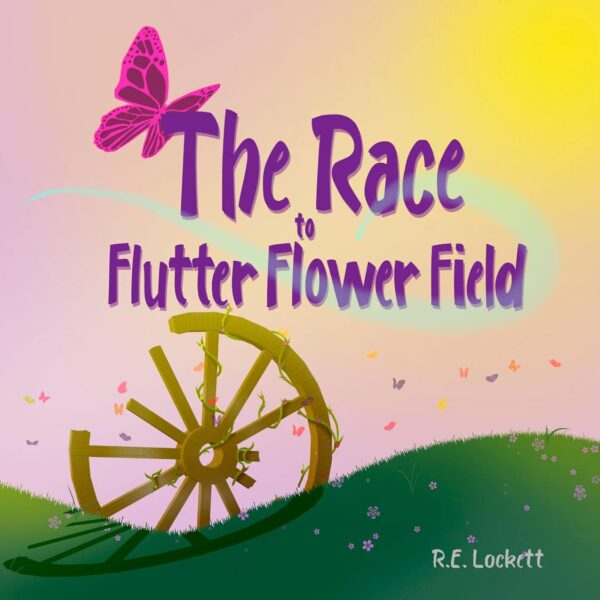Your cart is currently empty!
The Story Your Bookshelf Tells

in
Disclaimer: This post may contain affiliate links for books we recommend. If you make a purchase through these links, at no additional cost to you, we may earn a small commission. See our full Terms of Use here.
Your bookshelf tells a story all its own. If you’re like me, yours is probably stuffed with books that don’t fit on it anymore because you can’t bear to part with them — even if they have no practical use in your life anymore. If your bookshelf could talk, it would tell the story of your interests, your personality, and how you got where you are today in life. And I think there’s something really special about that.
The books on your bookshelf say more about you than you might think. If you have a shelf of carelessly stacked and dog-eared textbooks, it probably says something about your level of dedication to your education. If you have sleek, modern editions with pristine dust jackets, it says something about the person you are or would like to be. The way you arrange your books says something too. Do they sit in neat rows or are they haphazardly strewn about?
When we think of the items in our homes that make the biggest impression on guests, it’s easy to assume that only furniture and décor stand out. But your bookshelf holds its own place of distinction as one of the first things people notice when they enter your home. The books you choose to keep there are one of the best indicators of your interests and personality, so it’s important to choose them wisely. Plus, keeping them well-preserved will ensure that their impressions stay strong.
A Curated Library
The books that you display on your bookshelf can say a lot about you as a person. The topics that you are interested in, the authors that you admire, and even the condition of your books can give others a glimpse into your personality. So, what does your bookshelf say about you?
Do you take care to choose interesting books that will start conversations, or do you go for more classic reads that everyone has heard of? Perhaps you focus on novels, or maybe you prefer biographies and non-fiction. Whatever the case may be, your book selection reveals something about your interests and taste.
My bookcase is an organized hodgepodge of textbooks that I deemed too useful to sell back in school, collectible comic books and magazines, signed first editions, old, new, hardback and paperback beauties. It holds a little of everything that means something to me. My Senior High School yearbook sits next to a leather-bound collection of Poe which sits just down the row from The Brief Holt Handbook. Each book is in near pristine condition. Many have aged and yellowed, but I have loved them.
My bookshelf dances a fine line between library and museum, but it wasn’t always that way. At one point I had too many books to shelve. Duplicates and triplicates of books that I loved and simply kept buying to read again were the norm. To make room, I donated the repeats – boxes of books – and found myself with a curated library of sorts. The issue of too many books was further diminished by the ease of digital reading. No longer were books on the shelf because I had purchased them. Now I purchase the physical copies of books that I want in the collection.
Of course, when you look at the shelves, you most likely don’t see that history. What you see is the performance that I have tidily composed. The humor, philosophies and general interests (looking at you, Arduino Workshop) that have weight with me.
Where The Good Books Go
The bookshelf is often one of the first things people notice when they enter a room. It can give them an impression of who you are and what you’re interested in. The books you display and how you display them can say a lot about your personality. Do you keep your books organized by author, genre, or subject? Or are they just randomly placed? Do you have any special editions or signed copies? What about first editions? These choices can affect the way people read you.
How you lay out your shelves can have a significant impact on the impression they make. If they’re covered with layers of dust and piled high with old newspapers, then it’s clear that this isn’t an area of interest for you anymore. If they’re arranged neatly with spines facing outwards so readers can see them easily without having to lean over stacks or climb onto chairs, then this is important to you still.
My shelf is a living document. I rearrange the books constantly because of a need for change (change is good for writers) or simply filling spaces left by loaned books. For ages, I kept my signed Vonnegut in a sealed box with its own place on the shelf. I would point to it and say ‘That’s my signed Vonnegut’ and there it would stay. Foolish, I know, but one has very few prized possessions. Today that book is displayed proudly, facing the viewer… encased in protective plastic.
Some former iterations include books-by-size and arranged by-color. Visually, these are nice, and they are part of the overall bookshelf rotation. They never last long because I want people to feel comfortable picking up a book and thumbing through it. Just not the Vonnegut. Books go in and out of style. A well-read copy of something like Wuthering Heights may sit neglected for years before suddenly getting pulled back out for another read. And don’t forget that once popular classic books will always be loved classics, so even if you don’t actively peruse them, they should still have their place on the shelf where everyone can enjoy them!
Knick Knacks
Invariably, there will be some non-book items on your shelves. Bookends and photos, awards and thoughtful gifts. But what bookshelves really tell you is that this is a home of readers. A place where someone cares about words. Where someone likes to share their love of reading with others. A reader’s bookshelf is a beautiful thing to behold. It can show a person’s personality, interests, and values all at a glance. It tells the story of the life of the owner through the titles on the shelves. There are some people who might want to hide their favorite books behind closed doors so as not to taint them with unwarranted criticism from visitors or passersby.
I get it. We’ve all been judged for our literary choices before by those who think we should only read certain genres or authors because it is better for us or more socially acceptable than other selections. Those books need not clutter your personal library. I agree with reading everything that you can, but book ownership is a more specific endeavor.
Like those knick-knacks, each book should have a place on the shelf. Literature is a wide sea. Some books would seem out of place on my shelves. They would seem like performance rather than curation. A call to acknowledge that I had, indeed, consumed the unwanted vegetables at dinner and presented a clean plate. A personal library is a tattoo on the skin of our intellect. Some images just aren’t worth the ink. So, too, some titles.
The Importance of Care
An important part of displaying your books well is preserving their condition. Before placing them on your shelf, be sure to clean off any dust particles that may have accumulated on their covers. One good way to do this is by wiping them down with a slightly damp towel. Also, try taking extra care when putting heavier objects on shelves—just because they look sturdy doesn’t mean they won’t fall down at some point because of heavy items being placed too close together!
I am admittedly in the minority when it comes to the care I give my books. I perform a long-practiced and careful roll of the book’s pages to prevent any damage to the spine. It doesn’t bother me when spines have the wrinkly indicators of an oft read story. It bothers me when I cause it. Since youth I have had an almost reverence for books. The intact spines on my copies of The Bell Jar and The Book of Forms serve as a reminder of that reverence. It’s an extra step taken to leave the wonderfully concise world exactly as I found it. When I pick the book up again, it will feel like the first time. It also means that people are less likely to feel comfortable borrowing a book from me. Can’t win them all.
Take it, Read It, Pass it On
I love to lend books. In fact, my penchant for buying the book I want to read stems from the fact that I have no problem giving a good book away. Take it, read it, pass it on. It’s in the spirit of the shared word, the written word, to be passed on for as long as the book will hold together. Sometimes, even longer. I have books and magazines that belonged to my grandparents and will hopefully adorn the shelves of my grandchildren one day. We build bookshelves for a lifetime supply of memories and inspiration. A small price to pay for preserving such a precious commodity. If you ever clean out your home, keep the bookshelf handy. You never know what memories may linger among its dusty covers or quietly wait beneath its forgotten volumes.
Many people cannot bear parting with their books and so they store them deep in their house or apartment, never rereading them, never being able to show them off to anyone. I think this is sadder than simply lending them out. These are the people who need more room on their shelves for new titles instead of an old one. They may not remember what happened in the old one, anyway. They’re afraid someone else won’t take care of their precious stories so they do nothing but stare at them every day when what they need is new air circulating around those pages – not dust collecting there too.
If you fall into that category, please consider these points:
- The condition of your books may deteriorate if left unread for years.
- By sending a book back out into the world every once in a while, you make someone happy. And I’m guessing they’ll return the favor, eventually.
Final Words
You might not think that your bookshelf says much about you, but it actually tells a story. There is a certain symbolism in what we do with our bookshelves: we are telling a story about ourselves. What kind of person am I? What do I value? What sort of life am I living? When you come into my home, you can tell who lives here by looking at our shelves. They don’t lie about what matters most to us; they show our character and personality.
The books you display and how you arrange them can say a lot about your personality. Do you keep your books in pristine condition, or do you embrace the wear and tear? Do you stick to one genre, or do you like to mix things up? Your bookshelf reflects who you are, so make sure it tells the story you want it to.
-R.E.

